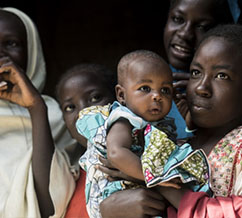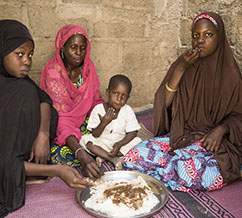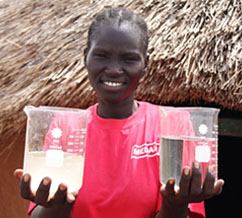This Saturday, August 19, marks World Humanitarian Day, a time to recognize aid workers who risk their lives while helping millions of people affected by global crises. Since the death of 22 United Nations and relief-agency staff on August 19, 2003 in a Baghdad bombing, each year we honor the brave women and men who have died while serving others, and celebrate the selfless spirit of those who risk everything to save lives.
From August 10–12, members of the Tripartite Commission—comprising representatives of the Government of Nigeria (GoN), the Government of the Republic of Cameroon (GRC), and the Office of the UN High Commissioner for Refugees (UNHCR)—convened in Abuja, Nigeria, to discuss the implementation of the Tripartite Agreement, which calls for safe, dignified, and voluntary returns of refugees from Cameroon to Nigeria.
The International Organization for Migration (IOM) reported a decline in the number of internally displaced persons (IDPs) sheltering in northeastern Nigeria’s Adamawa, Borno, and Yobe states between May and June, with nearly 1.69 million IDPs registered in June, compared to approximately 1.75 million IDPs in May.
The food security and nutrition situation in southeastern Ethiopia is deteriorating, with some households in parts of acutely drought-affected Somali Region experiencing an elevated risk of Catastrophe—IPC 5—levels of acute food insecurity, according to the USAID-funded Famine Early Warning Systems Network (FEWS NET).4 Relief actors—including USAID/OFDA and USAID/FFP—are monitoring the evolving food security and nutrition situation and scaling up ongoing humanitarian interventions.
In addition to continued population displacement, ongoing insecurity and economic desperation have led to increasing violent incidents targeting humanitarian personnel and assets—limiting access to some populations in need and exacerbating existing vulnerabilities. Relief actors reported 100 humanitarian access incidents in South Sudan in June, representing the highest number of incidents recorded in a single month in 2017 to date, and a continuation of increased looting in July.











Comment
Make a general inquiry or suggest an improvement.